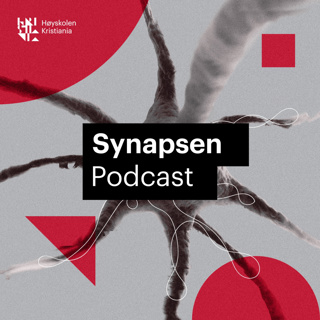
The Myth of Human Exceptionalism: Why Humans Aren’t as Special as We Think
In this episode, Harvard primatologist Christine Webb challenges one of our deepest beliefs: that humans stand apart from the rest of nature. She traces the roots of human exceptionalism from Aristotle and Descartes to modern science, and explains why we still cling to hierarchies of intelligence. While most critiques of human exceptionalism focus on our moral obligation toward other species, Webb argues that they overlook what humanity stands to gain by letting go of its illusions of uniqueness and superiority. Christine Webb is a primatologist at Harvard’s Department of Human Evolutionary Biology, with expertise in social behavior, cognition, and emotion. Her new book is The Arrogant Ape: The Myth of Human Exceptionalism and Why it Matters.
21 Okt 1h 3min

Shermer Says: Why Secularists Are Turning to Religion, The Substitution Hypothesis, Sleep Paralysis
Are we entering a Fifth Great Awakening—a cultural swing back toward religion? An increasing number of books and articles are calling for a religious revival. “We need religion to keep our society functioning.” “People need meaning.” Michael Shermer responds to and revisits the historical waves of religious fervor that shaped American life. He also asks what today’s renewed interest in faith, spirituality, and meaning says about our culture. Featuring commentary on new books by Ayaan Hirsi Ali and Charles Murray, and a preview of Helen Pluckrose’s new article for Skeptic.
18 Okt 42min

The Serial Killer Era of the 70s/80s: Lore, Patterns, and Plausible Explanations
Pulitzer-winner Caroline Fraser maps the lives and crimes of Ted Bundy and his infamous peers—the Green River Killer, the I-5 Killer, the Night Stalker, the Hillside Strangler, and even Charles Manson—and explores an intriguing hypothesis: might environmental factors have played a role in the rise of serial killers in the 1970s and ’80s? Caroline Fraser is the author of Prairie Fires: The American Dreams of Laura Ingalls Wilder, which won the Pulitzer Prize. She is also the author of God’s Perfect Child: Living and Dying in the Christian Science Church, and her writing has appeared in The New York Review of Books, The New Yorker, The Atlantic, Los Angeles Times, and London Review of Books, among other publications. Her new book is Murderland: Crime and Bloodlust in the Time of Serial Killers.
15 Okt 1h 35min

Shermer Says: Debate Skills, 2025 Nobel Peace Prize, Autism, Vaccines, ANTIFA, Bari Weiss & CBS News
First installment of our new series Shermer Says. Topics covered: Debate Skills Nobel Peace Prize 2025 Autism & Tylenol COVID Vaccines & Myocarditis ANTIFA Bari Weiss & CBS News New Skeptic Research Center Study
13 Okt 29min

When Rationality Becomes Irrational
For many decision scientists, their starting point—drawn from economics—is a quantitative formula called Rational Choice Theory, allowing people to calculate and choose the best options. The problem is that this framework assumes an overly simplistic picture of the world, in which different types of values can be quantified and compared, leading to the “most rational” choice. Behavioral economics acknowledges that irrationality is common but still accepts the underlying belief from economics of what a rational decision should look like. Drawing from economics, psychology, and philosophy—and both inspired by and challenging Daniel Kahneman’s Thinking, Fast and Slow—Barry Schwartz shows how the focus on rationality, narrowly understood, fails to fully describe how we think about our decisions, much less help us make better ones. Barry Schwartz is professor emeritus of psychology at Swarthmore College and visiting professor at Haas School of Business, University of California, Berkeley. His research and writing focus on the intersection of psychology and economics, particularly with regard to decision-making, intrinsic and extrinsic motivation, and the nature of human values. His books include The Paradox of Choice, Why We Work, and (as coauthor) Practical Wisdom. His new book, co-authored with the philosopher Richard Schuldenfrei, is Choose Wisely: Rationality, Ethics, and the Art of Decision-Making.
11 Okt 1h 27min

The Science of Revenge: Why Getting Even Feels So Good
Why do we crave revenge? And why can’t we stop? In this episode, James Kimmel explains the neuroscience behind one of our most destructive urges. Drawing from his new book, The Science of Revenge: Understanding the World’s Deadliest Addiction, Kimmel reveals how revenge activates the same brain circuits as drugs like cocaine—and why even imagining payback can feel euphoric. If you’ve ever fantasized about revenge (and who hasn’t?), whether in politics or personal relationships, this episode offers a chilling yet hopeful look at the science of moral outrage and redemption. James Kimmel, Jr., JD, is a lecturer in psychiatry at the Yale School of Medicine, a lawyer, and the founder and co-director of the Yale Collaborative for Motive Control Studies. A breakthrough scholar and expert on revenge, he first identified compulsive revenge seeking as an addiction and developed the behavioral addiction model of revenge as a public health approach for preventing and treating violence. His new book is The Science of Revenge: Understanding the World’s Deadliest Addiction—and How to Overcome It.
7 Okt 1h 29min

Why No One Thinks They’re in a Cult
What really defines a cult—and why do smart, well-intentioned people get caught up in them? In this episode, Michael Shermer sits down with cult intervention specialist Ashlen Hilliard to explore the psychology of high-control groups and the people drawn into them. Her work has been featured in prominent media outlets like Hulu, NewsNation, HuffPost, and BET+. In 2022, Ashlen founded People Leave Cults, offering intervention and recovery resources for survivors and concerned loved ones. As one of the few Cult Intervention Specialists in the country, Ashlen consults with a team of experts to develop personalized intervention strategies for families that have a loved one involved in a range of coercive situations, including cults, gangs, domestic violence, trafficking, and violent extremism. She also served as the Director of Events for the International Cultic Studies Association (ICSA), organizing regional and international events, workshops, and conferences for those affected by the cult phenomena and psychological manipulation. She is touring the Fall of 2025 in these cities for her show https://www.psychologyofcults.com/: October 8 Jacksonville, FL Florida Theatre October 9 Newberry, SC Newberry Opera House October 11 Huntsville, AL Mars Music Hall October 12 Bristol, TN Paramount Bristol October 14 Charleston, WV Maier Foundation Performing Hall October 16 Stroudsburg, PA Sherman Theater October 17 Morristown, NJ Mayo Performing Arts Center October 18 Stamford, CT Palace Theatre October 19 Concord, NH Chubb Theatre October 21 Buffalo, NY Electric City October 22 Columbus, OH The Southern Theatre October 24 Pontiac, MI Flagstar Strand Theatre October 26 Cincinnati, OH Bogart's October 28 Chicago, IL City Winery October 29 Indianapolis, IN Clowes Memorial Hall October 30 Cleveland, OH Connor Palace November 23 Livermore, CA Livermore Valley Performing Arts Center
5 Okt 1h 13min

Was Benjamin Franklin America’s First Scientist?
Michael Shermer sits down with economist and Franklin descendant Dr. Mark Skousen to explore the wit, wisdom, and modern relevance of Benjamin Franklin, the man who bridged science, politics, and philosophy like no other. Shermer and Skousen discuss Franklin’s contributions to science, moral philosophy, economics, and religious thought, while asking: What would Franklin make of today’s America—its economy, politics, and culture? Mark Skousen holds the Doti-Spogli Chair of Free Enterprise at Chapman University. Known as “America’s Economist,” he is the editor of Forecasts & Strategies, an award winning investment newsletter, and producer of FreedomFest, “the world’s largest gathering of free minds.” He is the author of over 25 books, incl. his latest, The Greatest American: Benjamin Franklin, The World’s Most Versatile Genius.
30 Sep 1h 29min




















